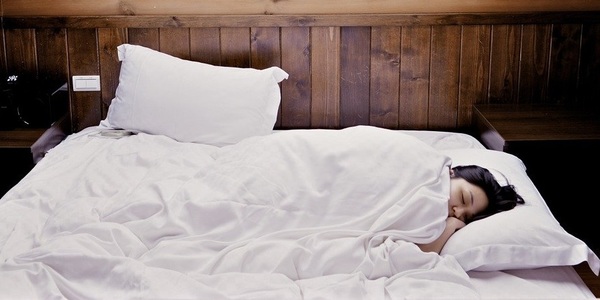Sleep is a natural phenomenon that all living beings on the planet commonly do.
[the_ad id=”14222″]
It is an essential part of our body’s function that boosts our mind and body and prepares us for a new day. Some of us crave to have a sound sleep and fail to get it, while some sleep like a log. Though we spend one-third of our lives sleeping, not all people achieve the speculated quality and quantity of sleep. Many factors take charge of people’s detracted sleep, and misconceptions about sleep have topped the list. Here we have debunked a few sleep myths for you.
Myth 1: Good Sleepers Sleep Still
Fact: It is totally normal for people to twist, turn, and toss on their beds due to brief arousals during sleep. It is a part of the sleep cycle, and they even do not remember them. These movements may vary with time and people. However, having hundreds of such movements and arousals frequently indicates sleep disorders like sleep apnea.
Myth 2: Power Naps Compensate Nighttime Sleep
Fact: Naps not exceeding 30 minutes in the afternoon indeed charge you up for the second half of the day. But if your naps are only to compensate for your disrupted last night’s sleep, they are definitely not doing any good. We usually pass through several essential cycles or phases of sleep at night, which do not happen during daytime naps. Also, if you have trouble shutting your eyes close to bedtime, naps are going to worsen it further.
Myth 3: Getting More Sleep Is Good For Health
Fact: Sleeping more or less than the stipulated amount of time is not a healthy habit. It indicates a masked health condition. Experts advise 7 to 9 hours of sleep for healthy adults. Oversleeping invites obesity, back pain, headaches, heart diseases, etc.
Myth 4: Alcohol Puts You to Sleep
Fact: While alcohol can make you drowsy and initiate your sleep soon after a drink or two, it does not provide you with a sound sleep. It affects your sleep quality, and you will end up with an interrupted sleep cycle. Please avoid alcohol, especially prior to your bedtime.
Myth 5: Good Sleepers Can Sleep Anytime and Anywhere
Fact: Good sleepers fall asleep and wake up at a specified time every day naturally. Falling asleep anytime or regardless of the circumstances reveals an underlying sleeping disorder. If you sleep anytime and anywhere, conditions like sleep apnea, narcolepsy, and insomnia need to be suspected.
Myth 6: Lights Do Not Affect Sleep
Fact: Most of us have the habit of using night lamps or dim lights while sleeping. But studies reveal that even low light can disrupt your sleep and affect the circadian rhythm. Sleeping with lights on causes strain to the eyes. Just unplug your lamps, switch off the lights, and if needed, you can use an indirect light source, such as light from the next room, and sleep in a dark room.
Source

